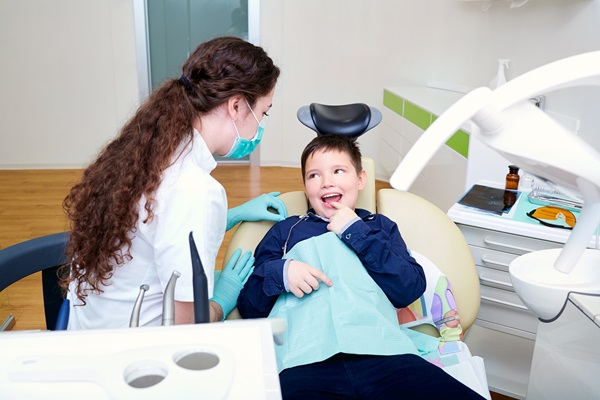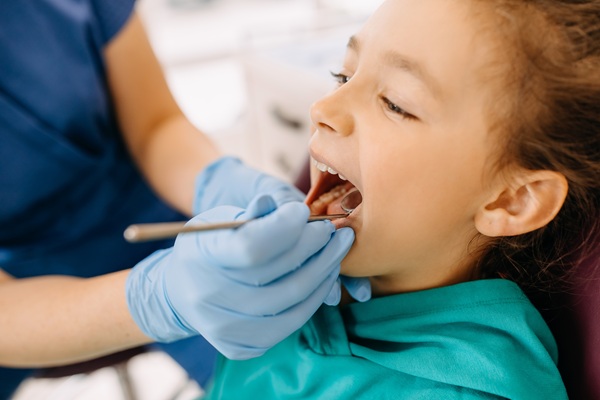Pediatric Dentistry – Nutrition Tips for Children’s Oral Health

Pediatric dentistry nutrition tips to maintain your child’s oral health are vital. These reminders can help you and your child with your consistency in dental care practices. A healthy diet needs more effort to maintain with all the tempting treats around your child. If you want to learn how to maintain good nutrition for your child’s good dental health, here are some pediatric dentistry tips.
Making healthier bottles for bedtime and naps
Bedtime and naptime are two daily occasions when toddlers like to have something to suckle. Filling the feeding bottles with water is healthier. A water bottle will prevent teeth from soaking in sugars. If there is a need for milk, brushing the toddler’s teeth after the bottle will remove the sugars before sleeping. This pediatric dentistry measure makes sure that the toddler’s teeth do not have sugary coatings as they sleep.
Increasing vegetables and fruits
Replacing the sugary treats with vegetables and fruits will add more fiber to the child’s diet. Crunching on these foods can help wash off the stuck food particles between teeth. The pediatric dentistry fact of chewing also stimulates the production of saliva. Saliva buffers the acids from bacteria in the mouth. Melons, pears, celery, carrots, apples, onions, cucumbers, and strawberries are good for the teeth and gums. Brushing the child’s teeth after eating sugary and acidic foods will remove excess particles and sugars.
Eating yogurt
This probiotic food can replace cereal at any time for breakfast. Choosing low sugar or plain yogurt is better for the teeth. Greek yogurt is ideal. This type of food is full of casein and calcium. These pediatric dentistry components strengthen the enamel, protecting the child’s teeth from cavities. The good bacteria in yogurt can balance out the pH levels in the mouth.
Adding cheese to the daily diet
Cheese is a superfood for teeth. The phosphate and calcium in cheese help build strong teeth. This superfood has no acid at all. It can lower the acidity in the child’s mouth. A lower pH produces more acid-neutralizing saliva. This reduces cavities.
Munching on almonds
These nuts are rich in protein but low in sugar. Almonds are low in sugar and high in protein as well. Protein and calcium in almonds prevent bacteria from destroying teeth. This then reduces the child’s risk of developing cavities. The only way to correct cavities is to let the child go through a series of pediatric dentistry treatments.
Drinking more water
Water makes sure the child’s mouth is free from acids and starch. This clear liquid can remove food particles and leftover sugar on the child’s teeth. Water also battles bad breath. Drinking this often can stimulate the production of saliva. More saliva means more opportunities to neutralize the acids in the mouth.
Avoiding starchy, sugary, and sticky drinks
Sweet drinks can also ruin the child’s dental harmony. This weakens the teeth’s enamel layer. Removing granola bars, hard candies, and drinks can prevent the formation of cavities. It can contribute to daily oral hygiene.
Nutritional changes in pediatric dentistry can help enhance the child’s dental health
Sweets may be tempting, but they deteriorate a child’s teeth. The damage becomes more evident as the child keeps eating. Your pediatric dentist can determine which foods and drinks your child can have. Regular visits to the dentist can help ensure the effectiveness of the pediatric dentistry nutrition reminders.
Are you considering getting a pediatric dentistry treatment in the Holland area? Get more information at https://www.smiling-kids.com.
Check out what others are saying about our dental services on Yelp: Pediatric Dentist in Holland, PA.
Related Posts
Wondering what a dentist for kids recommends for preventing cavities? Read on to learn more. Parents often have problems getting their kids to practice good oral hygiene. Children’s affinity for sugary treats can make them develop cavities, which can be painful. They can also be susceptible to other dental problems. You can talk to a…
A pulpotomy is performed on baby teeth and is one of the more highly recommended pediatric dental procedures for dealing with severe tooth decay that has led to an infected dental pulp in the root of the tooth. A pulpotomy is often necessary to save a decayed baby tooth (especially molars) from falling out early.Although…
We are committed to providing quality service to residents located In the Holland, PA area. Our website has additional information about the following topics: Pediatric Dentist, Pediatric Dentist Near Me, Pediatric Dentistry, Dentist For Kids, Kid Friendly Dentist, Children's Dentist, Emergency Pediatric Dentist, Special Needs Dentist, Sedation Dentistry For Kids and Pulpotomy.
A Kid Friendly Dentist understands the importance of creating a welcoming and comfortable environment tailored to young patients' needs to help alleviate the child's stress or anxiety. Establishing positive dental experiences early on is not just about the present, but it also ensures children develop healthy oral hygiene habits that last a lifetime. Learn the…


